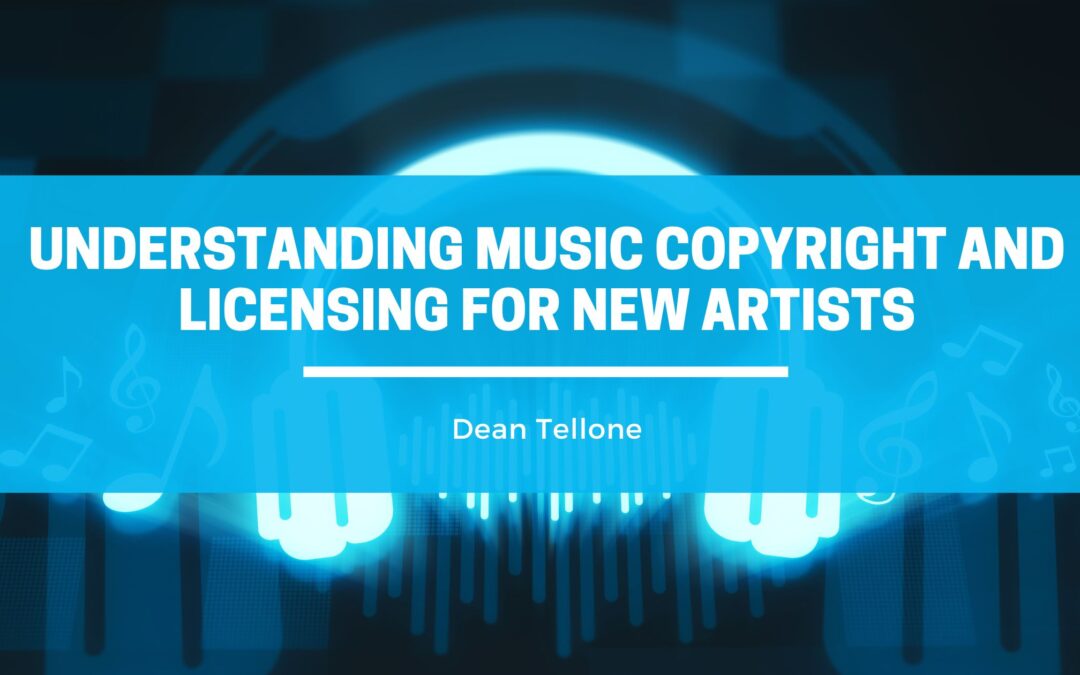As a new artist stepping into the music industry, understanding music copyright and licensing is essential. The legal aspects of owning and distributing your music can be complex, but they are critical for protecting your creative work and ensuring you earn revenue. Here’s a breakdown of what music copyright and licensing entail and how new artists can navigate these processes.
What Is Copyright in Music?
Copyright gives creators the exclusive legal right to use, distribute, and profit from their original work. In the case of music, copyright protects both the composition (the written melody and lyrics) and the sound recording (the actual recorded performance of the song).
For new artists, copyright is automatically applied to your work when it is created and fixed in a tangible form, such as a recording or a written music sheet. However, while you automatically own the copyright to your music, it’s advisable to register it with the U.S. Copyright Office officially. Registering your copyright can make it easier to prove ownership in court if your rights are ever violated.
The Two Types of Music Copyright
It’s important to understand that there are two separate copyrights in music:
- Composition Copyright – This applies to the musical composition, including the melody, harmony, and lyrics. The songwriter or composer owns this copyright.
- Sound Recording Copyright – This covers the specific recording of a song. If you, as the artist, record your songs, you would own this copyright unless you’ve signed a contract with a record label that retains ownership.
What Is Music Licensing?
Music licensing is the process by which the owner of a copyright grants permission to others to use their music in various ways. Licensing is crucial for new artists, as it allows you to earn money when your music is played on the radio, in TV shows, commercials, movies, or online platforms like YouTube and Spotify.
Here are some key types of licenses that new artists should know:
- Mechanical License: This allows others to reproduce your music, whether by distributing CDs, selling downloads, or streaming. In the U.S., mechanical royalties are paid directly through agencies like the Harry Fox Agency or streaming platforms.
- Public Performance License: A public performance license is required whenever your music is played in public—on the radio, in a bar, or at a live concert. Performance rights organizations (PROs) like ASCAP, BMI, and SESAC collect royalties for public performances on behalf of artists.
- Synchronization (Sync) License: This license is required when your music syncs with visual media, such as TV shows, movies, video games, or ads. Sync licensing is an excellent way for new artists to gain exposure and earn significant revenue.
- Master Use License: If someone wants to use your original song recording in visual media, they’ll need a master use license. This is especially relevant if your performance or recording becomes famous enough for brands or filmmakers to want to feature it.
How to Protect and License Your Music as a New Artist
- Register Your Copyright: As mentioned, registering your copyright with the U.S. Copyright Office offers extra protection. It allows you to pursue legal action if your music is used without permission.
- Join a PRO: Performance rights organizations (PROs) like ASCAP or BMI are vital for collecting royalties from public performances. Joining a PRO ensures you get paid when your music is played on the radio, in restaurants, or at concerts.
- Use Licensing Platforms: Platforms like Songtrust and CD Baby Pro can help you manage your music rights, ensuring you get paid for mechanical royalties and sync licenses. These platforms simplify the process of protecting and monetizing your music globally.
Final Thoughts
Understanding music copyright and licensing is crucial for any new artist looking to protect their work and maximize revenue. Taking the right steps early in your career, such as registering your copyright and joining a PRO, will give you a solid foundation to thrive in the music industry. With these tools, you’ll be prepared to navigate the complex world of music rights and ensure that your creations remain under your control.


